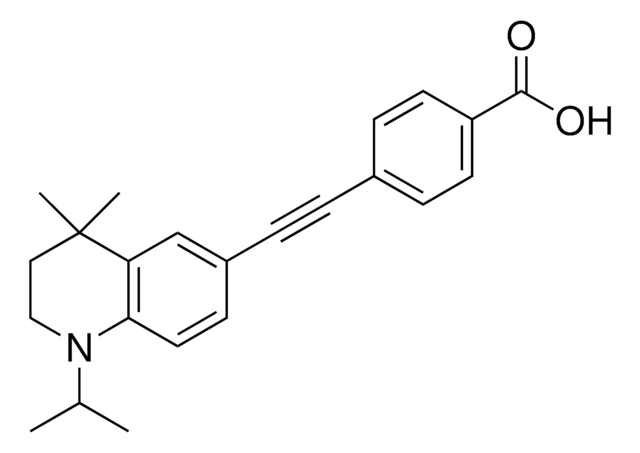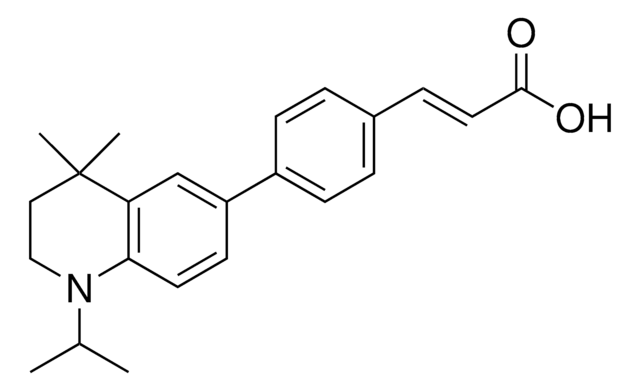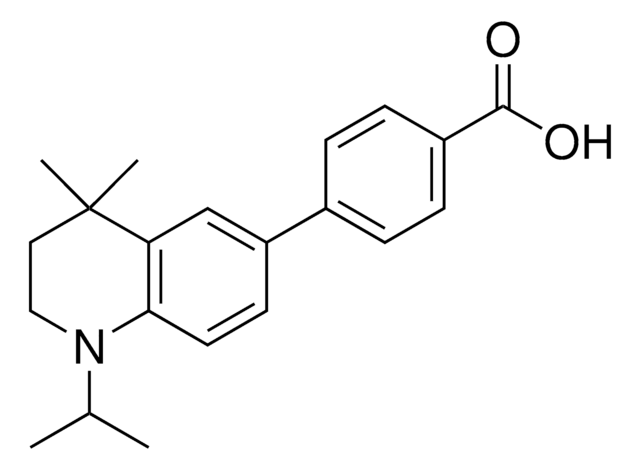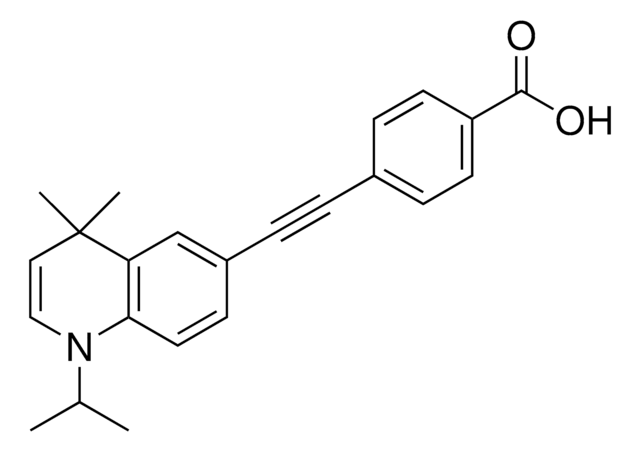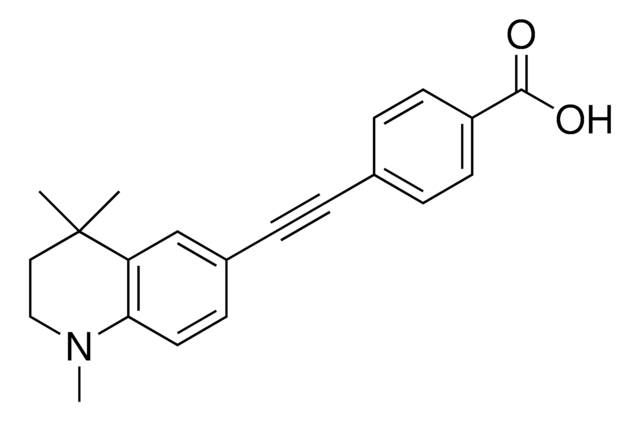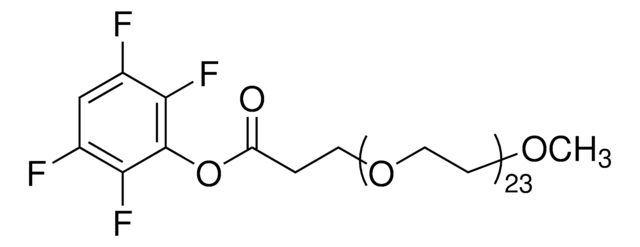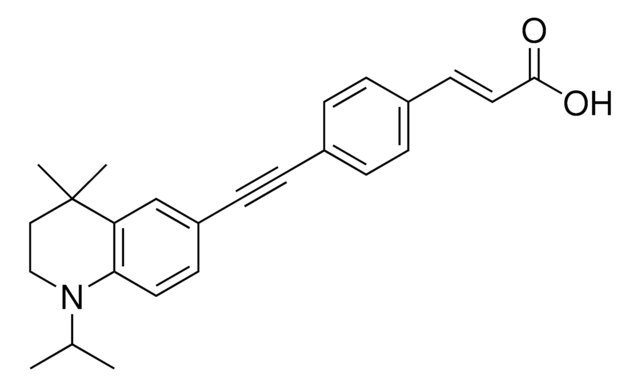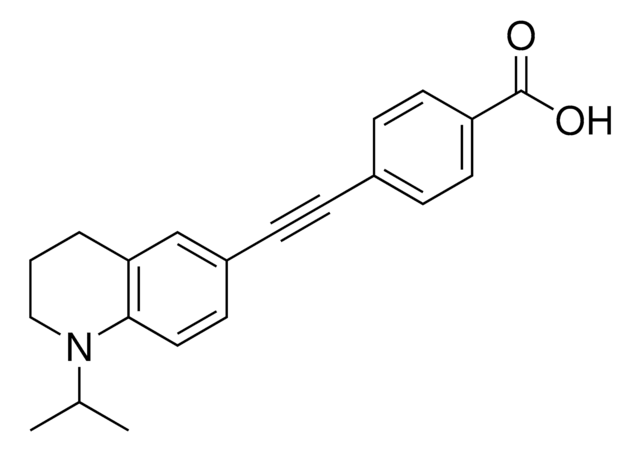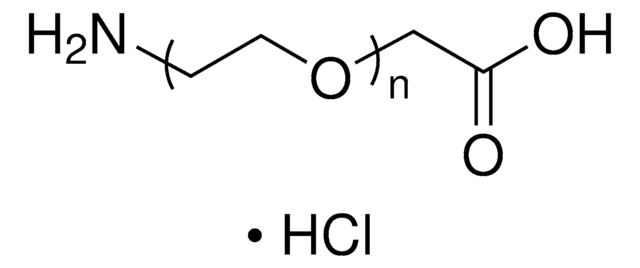About This Item
Recommended Products
Assay
≥95% (HPLC)
form
powder
storage temp.
2-8°C
SMILES string
N1(CCC(c2c1ccc(c2)C#Cc3ccc(cc3)\C=C\C(=O)OC)(C)C)CC#C
InChI
1S/C26H25NO2/c1-5-17-27-18-16-26(2,3)23-19-22(12-14-24(23)27)11-10-20-6-8-21(9-7-20)13-15-25(28)29-4/h1,6-9,12-15,19H,16-18H2,2-4H3/b15-13+
Related Categories
Application
Features and Benefits
Product can be used with our line of photoreactors: Including Penn PhD (Z744035) & SynLED 2.0 (Z744080)
Other Notes
Legal Information
Storage Class Code
11 - Combustible Solids
WGK
WGK 3
Flash Point(F)
Not applicable
Flash Point(C)
Not applicable
Choose from one of the most recent versions:
Certificates of Analysis (COA)
Sorry, we don't have COAs for this product available online at this time.
If you need assistance, please contact Customer Support.
Already Own This Product?
Find documentation for the products that you have recently purchased in the Document Library.
Articles
Fluorescent retinoic acid analogues for use in cellular imaging, protein-ligand binding assays, and flow cytometry to bypass traditional problems associated with fluorescent probes.
Our team of scientists has experience in all areas of research including Life Science, Material Science, Chemical Synthesis, Chromatography, Analytical and many others.
Contact Technical Service